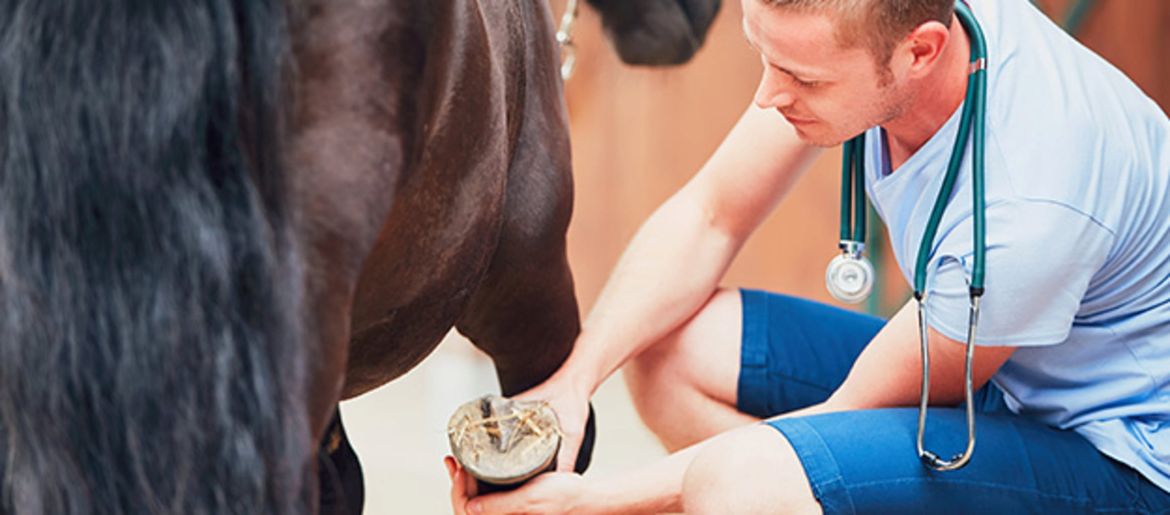Caution: Laminitus!
With the grazing season, our horses' risk of developing laminitis increases again. That grass, the original staple food for four-legged friends, is to blame for this sounds paradoxical at first. But the explanation is relatively simple.
The grasses that our horses find on horse pastures today are only a small part of their natural origin. Mostly they come from cultivated seed mixtures. Although these breeding grasses have the advantage of high yields, they also have an exceptionally high energy content. This is wonderful for farm animals such as dairy cows or beef cattle, as they need the additional energy. However, these high-performance grasses are not ideal for horses, as they contain far too much sugar and too little raw fibre.
In addition, cultivated grasses are often treated against infectious damage, frost, browsing and drought so that they can grow quickly and undamaged.
Fructan as a danger
One substance that is used to treat grasses is fructan. It is a long-chain sugar molecule. However, this cannot be properly unlocked in the small intestine of our horses.
In experiments on horses, laminitis could be triggered by a single administration of fructan. The amount of fructan that a horse needs for this is normally not able to ingest in a day, but the fructan content in the grass fluctuates depending on the temperature. It could therefore be entirely possible that a horse could eat the amount of fructan that was experimentally necessary to trigger laminitis in one day in a pasture.
What happens when a horse eats fructan
As already mentioned, fructan cannot be properly broken down in the small intestine. Therefore, it causes acidification in the large intestine and the associated death of many useful microbes. Toxins are released that enter the bloodstream through the intestinal wall. The resulting insufficient blood flow in the dermis area leads to a depletion of oxygen and nutrients. Inflammations arise, the fluid pressure rises in the cramped space of the hoof capsule and, to top it off, decomposition enzymes also become active.
Sooner or later the hoof wall and the dermis can no longer bind together and the connection between the coffin bone and the outer wall of the hoof is lost. In the worst case scenario, the hoof wall can come off entirely.
If fructan is used to treat grasses, the accumulation is greatest with intense sunlight. Horses that are prone to laminitis should therefore go out to pasture in the morning when the fructan content is not that high. However, it shouldn't be too cold either, because the fructan content rises at temperatures below six degrees, and persistent drought also causes fructan levels to rise.
Many structurally poor grasses also only have a low saturation value for horses, which is why the animals eat them down to the roots and become fat faster.
What to do in the event of an acute rehabilitation episode
If a horse is already suffering from laminitis, the veterinarian must be called first. In addition, a diet rich in vital substances and low in carbohydrates should be observed. In addition, certain supplements can help to get the inflammation under control and to support the rebuilding of the hoof. It is best to always discuss the use of supplements with a veterinarian.
What can you do?
To prevent our horses from suffering from laminitis as often, we should try to let them graze on species-rich and natural green spaces. Traditional permanent grassland on which a large number of different, natural wild grasses and herbs grow would be ideal.
Of course, you can also deliberately use low-fructan grass species, such as timothy grass in a pasture. Another measure would be the regular use of pastures and, where possible, additional cattle grazing, as well as regular fertilisation during the grazing season.
Latest reviews
-
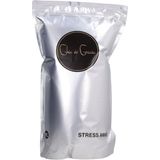 5.0 (2)
5.0 (2)Chia de Gracia Stress Away, 1,50 kg
- Natural blend of herbs
- Contains lavender
- With bee pollen
€ 49,49 (€ 32,99 / kg)Delivery by January 03
-
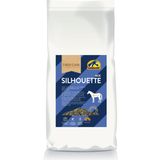 € 31,99 (€ 1,60 / kg)
€ 31,99 (€ 1,60 / kg)Delivery by January 03
-
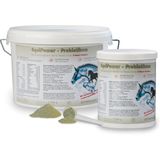 5.0 (2)
5.0 (2)EquiPower Probiotic, 2 kg
- Supports the intestinal flora
- Supports digestion
- Optimal nutrient supply
€ 54,99 (€ 27,50 / kg)Delivery by January 03
-
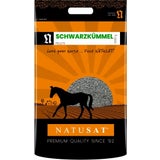 4.8 (19)
4.8 (19)NATUSAT Black Cumin Pellets, 5.000 g
- Black cumin meal & peppermint
- Herbal mixture specially suitable for horses
- Easy to feed
€ 21,99 (€ 4,40 / kg)Delivery by January 03
